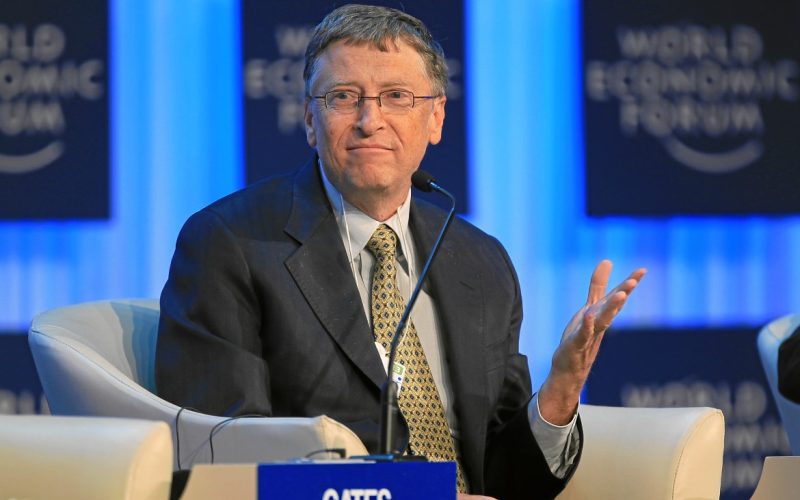On May 8, 2025, Bill Gates, the co-founder of Microsoft and one of the world’s most influential philanthropists, announced a transformative plan to wind down the Bill & Melinda Gates Foundation by 2045. This decision, reported widely by outlets like The New York Times and Fortune, marks a significant shift from the foundation’s original timeline, which planned to cease operations two decades after Gates’ death.
The accelerated closure, now set for 20 years from the announcement, comes with a pledge to spend an unprecedented $200 billion to address global health and poverty challenges before the foundation shuts its doors.
The Gates Foundation’s Legacy
Established in 2000 by Bill Gates and his then-wife, Melinda French Gates, the foundation has become the world’s largest private philanthropic organization, with a trust portfolio valued at approximately $44 billion as of 2024. Headquartered in Seattle, Washington, the foundation has focused on global health, education, and poverty alleviation. Its initiatives have driven down costs for medical treatments in low- and middle-income countries, shaped global health policies, and reduced child mortality rates significantly. Gates himself described the foundation’s work as his “second and final career,” noting its impact exceeded his expectations.
Why Wind Down Now?
The decision to close the foundation earlier than planned is driven by Gates’ belief that spending his fortune now can save and improve lives immediately, creating long-term ripple effects. This move aligns with his commitment to the Giving Pledge, a 2010 initiative he co-created with Warren Buffett to encourage billionaires to donate the majority of their wealth. Gates has pledged to donate 99% of his remaining fortune, estimated at $155 billion by Bloomberg, to the foundation before its closure. The announcement comes amidst concerns over reduced U.S. foreign aid under the Trump administration, which Gates has warned his foundation cannot fully replace.
Personal Context: Gates’ Life and Values
Bill Gates, born October 28, 1955, in Seattle, transformed the tech world as Microsoft’s co-founder alongside Paul Allen in 1975. Stepping down as CEO in 2000, he shifted focus to philanthropy, driven by a desire to address global inequities. His personal wealth, now around $104.6 billion as of April 2025, has been diversified through Cascade Investment LLC, with stakes in companies like Republic Services and Four Seasons Hotels. Gates’ commitment to giving extends to his family values; he plans to leave less than 1% of his fortune to his three children—Jennifer, Rory, and Phoebe—emphasizing self-reliance and philanthropy.
The $200 Billion Gamble
The plan to spend $200 billion over the next two decades is described as a “moonshot” by Fortune, aimed at curing diseases affecting the world’s poorest populations. The foundation will intensify efforts in vaccine development, malaria research, HIV treatment, and agricultural innovation. However, this ambitious spending comes at a challenging time. Recent cuts to U.S. foreign aid have disrupted global health programs, and Gates has expressed concerns about the foundation’s ability to fill these gaps. Additionally, the Trump administration’s policies, including scrutiny from the Department of Government Efficiency (DOGE), have raised fears about potential challenges to the foundation’s tax-exempt status.
Beyond the Headlines: Unreported Details
While news outlets have focused on the closure and financial pledge, less attention has been paid to the operational changes within the foundation. Sources close to the organization suggest Gates is restructuring internal teams to prioritize high-impact projects, potentially reducing administrative overhead. There’s also speculation about increased collaboration with other philanthropies to maximize the $200 billion’s impact. Unlike public reports, which emphasize global health, the foundation may quietly expand its focus on climate resilience and AI-driven solutions in healthcare and education, areas Gates has championed in recent talks, such as his March 2025 Express Adda appearance in Mumbai.
Impacts and Controversies
The wind-down announcement has sparked mixed reactions. Supporters praise Gates’ urgency to address pressing global issues, while critics question the timing, given reduced governmental support for international aid. Some X posts reflect skepticism, citing the foundation’s influence on global health policy as a double-edged sword. The closure could reduce the foundation’s long-term sway but also risks leaving gaps in funding for ongoing projects. Gates has acknowledged the timing is “not the best,” yet insists the accelerated spending will yield transformative results.
Gates’ Broader Influence
Beyond philanthropy, Gates remains a vocal advocate for technology and climate solutions. His Breakthrough Energy initiative, though recently scaled back due to policy shifts, underscores his commitment to clean energy. In a May 2025 Bloomberg interview, he expressed optimism about U.S. clean-energy transitions despite political headwinds. His views on artificial intelligence, shared on platforms like The Tonight Show, highlight his belief in AI’s potential to revolutionize healthcare and education, though he’s cautioned about its rapid development.
What Lies Ahead
As the foundation prepares for its final two decades, Gates faces the challenge of balancing immediate impact with sustainable outcomes. The $200 billion commitment is a bold bet on humanity, but its success hinges on global cooperation and political stability. For Gates, this move is not just about legacy but about maximizing his resources for the “neediest.” The world will watch closely as the foundation’s final chapter unfolds, potentially reshaping philanthropy’s role in global development.





